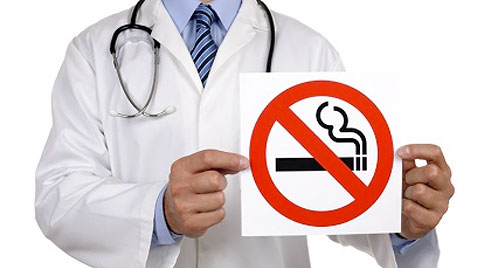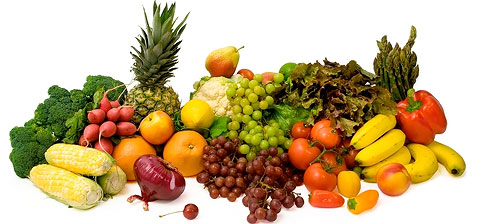
February 22, 2013
Furci Home / Fitness Channel / Bullz-Eye Home
As stated in Part I of this series, I'm a strong critic of the pharmaceutical industry. However, I don't believe the rumor that there is a cure for cancer that they are keeping from us. I also discussed the reason why the pharmaceutical industry turns a blind eye to certain substances when the preliminary research for treating cancer with these substances is so positive, inevitably hurting the general public. Dichloroacetate (DCA) is one of these substances.
I cited a few of the many studies using DCA in treating cancer in Part I, which researchers conclude are very positive. I also explain how DCA works and the mechanisms by which it has such an effect on not only halting the growth of tumors, but shrinking them as well. But, like anything in life, there are two sides to everything.
DCA, although very promising, is not the cancer panacea some websites are touting it to be, and it should be used with extreme caution.
AN OUNCE OF PREVENTION
Imagine for a minute you're someone who drives their car like they're the only one on the road. You're reckless and speed everywhere you go, rarely observing traffic laws. What are the chances you're probably going to eventually get into an accident? I'm sure you'll agree that your chances of getting in an accident while driving recklessly are much higher than if you followed the law and were a defensive driver. Of course it goes without saying that you can do all the right things and drive exactly as you're supposed to, but still get in an accident.
The same holds true for your body. If you drive it recklessly -- by eating garbage food, not sleeping enough, smoking, drinking too much, not handling stress well -- you're almost assuring yourself one or more illnesses in your lifetime. However, just like driving your car, you can do all the things you're supposed to do and still end up on the short end of the stick. Yes, there are people who lead a very healthy lifestyle and still battle a debilitating or fatal disease. But I'm sure you'd agree, if you can cut your risk of acquiring a disease like cancer by making a few lifestyle changes and you choose not to, you just don't care enough about yourself.

A few facts:
- If you're a man, the lifetime risk of getting cancer is one out of two; the risk of dying from cancer is one out of four. [1]
- If you're a woman, the risk of getting cancer is one in three; the risk of dying from cancer is one in five. [1]
- 77 percent of all cancers are diagnosed in persons 55 years or older. [1]
- Approximately 1,500 people are expected to die each day from cancer. [1]
- The risk of lung cancer for men who smoke is 23 times higher than the risk for men who don't smoke. So the relative risk of lung cancer for men who smoke is 23. The risk of lung cancer for men who smoke is 2,300 percent higher than it is for men who don't smoke. [2]
The above statistics paint a daunting picture. For some it looks like an overwhelming task to prevent such a prevalent disease. But keep in mind the above figures are averages across the entire population. Risk goes up and down with lifestyle habits and, in some cases, genetics.
So what are the things you can do to decrease your risk of cancer? The American Cancer Society estimated that in 2012 about 173,200 cancer deaths will be caused by tobacco use. Moreover, scientific evidence suggests that about one-third of the 577,190 cancer deaths expected to occur in 2012 would be related to overweight or obesity, physical inactivity, and poor nutrition; and thus they could also be prevented. [1]
What that means is, if you don't smoke you cut your chances of dying from cancer by 30 percent. If you're not obese or overweight, eat healthy and exercise, you cut your risk by another 33 percent. You'd have to be a moron not to think that was encouraging.
Having said that, what is eating healthy? Many people across the country believe what they're eating is healthy, when in reality it's not. As I've written so many times, this is due to the overwhelming amount of misinformation out there.
"Another major problem we Americans face is that most of the food we eat has little resemblance to whole natural food, lacks any nutritional value, and is made with ingredients that can have serious health consequences. Convenience foods have become such a part of our society we've become too lazy to actually cook meals made from real food. And many of the meals people do cook involve premade this and premade that. Again, Americans consume "faux food"." [3]
So, what foods should we stay away from, and what foods should we eat? An entire book can be written on this subject, but I'm going to try and make it simple and straightforward to get the biggest bang for your buck.
FOODS & SUBSTANCES TO ELIMINATE OR STRICTLY REDUCE
Trans fat
 Sources: Any foods containin:; "shortening," "partially hydrogenated vegetable oil" or "hydrogenated vegetable oil" in the ingredients list. The importance of reading food labels cannot be stressed enough. These man-made fats are in tens of thousands of products.
Sources: Any foods containin:; "shortening," "partially hydrogenated vegetable oil" or "hydrogenated vegetable oil" in the ingredients list. The importance of reading food labels cannot be stressed enough. These man-made fats are in tens of thousands of products.
Trans fat is produced through the process of hydrogenation. This process turns polyunsaturated oils (vegetable oil) into fats that are solid at room temperature, which are used to make margarine and shortening.
Decades of research show the consumption of trans fats to be detrimental to our health. As early as the 1940s, researchers found a strong correlation between cancer, heart disease and the consumption of hydrogenated fats. [4]
Polyunsaturated fats
Sources: Corn oil, soy oil, safflower oil, sunflower oil, cotton seed oil, walnuts, flax oil, hemp oil, herring, salmon, sardines, mackerel.
These oils are very susceptible to becoming oxidized or rancid when exposed to light, oxygen or heat. Believe it or not these oils arrive at the supermarket already spoiled as a consequence of the extraction process. This process exposes polyunsaturated fats to heat, and chemicals to extract the oil, and then deodorizers to get rid of the horrible smell.
Safflower, corn, sunflower, soybean and cottonseed oils all contain over 50 percent of the highly unstable fatty acid Omega – 6 and should never be used in cooking, frying or baking. Studies have shown that omega-6 fatty acids promote the growth and spread of tumors. [5] If you cook with "vegetable oil," or use it in salads, do yourself a favor and stop.
Heating these oils causes further oxidation and produces even larger amounts of free radicals already contained in the product when purchased. Free radicals -- or chemical marauders as some scientists call them -- wreak havoc on our bodies. A major problem with free radicals is they can damage DNA/RNA strands that trigger mutations, setting the stage for cancer. [5]
Processed foods
We truly are what we eat. Here is a short list of some of the substances contained in some of the foods we consume which are known to be carcinogens:
- Acesulfame-K, also known as Acesulfame-potassium or "Sunnette"
- Artificial colors, or FD&C
- Potassium bromate
- Hexachlorobenzene
- Deldrin
- Benzene hexachloride
You know it's bad when the ingredient list for bread has 25, 30 or more ingredients that you can't even pronounce.
Processed foods contain an entire array of potentially dangerous substances used for taste, texture and shelf life. Sure, many of these ingredients are deemed safe in certain amounts by the U.S. Food & Drug Administration (FDA), but if it's unsafe in certain amounts, then one can conclude consumption over time has to be bad. Moreover, the billion dollar food industry spends millions of dollars lobbying the federal government to not only approve, but hide ingredients. Yes, hide ingredients by changing the name, or actually leaving them off the nutrition label. To me it's simple -- when there is so much money at stake I'm not putting my health in the hands of an industry that is in bed with the very agency that is supposed to look out for us.
FOODS & SUBSTANCES TO CONSUME FOR OPTIMUM HEALTH
Whole natural foods
By far, one of the best changes in your lifestyle (besides quitting smoking and not being overweight) is eating healthy. The healthiest foods you can consume are unprocessed and organically grown. Whole natural foods are nutrient-dense; they're the richest source of essential nutrients needed for optimum health.
The healthiest foods are usually the most familiar and include fruits, vegetables, meats, fish and fats. The best way to ensure you're getting what you're paying for is to get to know your local farmers and to buy as much locally grow food items as you can.

Glutathione
This is a powerful substance found in every cell and is an outstanding antioxidant. Glutathione, (pronounced gluta-thigh-own), protects cells from free radical damage, helps eliminate toxins and protects the immune system.
"It's the most important molecule you need to stay healthy and prevent disease, yet you've probably never heard of it. It's the secret to prevent aging, cancer, heart disease, dementia and more, and necessary to treat everything from autism to Alzheimer's disease. There are more than 89,000 medical articles about it, but your doctor doesn't know how address the epidemic deficiency of this critical life-giving molecule …" [6] Dr.Mark Hyman
Glutathione is thought to be extremely helpful in preventing cells from becoming cancerous. Many experts agree that it's the constant onslaught of free radicals that ultimately harms our DNA resulting in the conversion of normal cells to cancer cells. "By raising cell glutathione, one protects the DNA and cell molecules against free radical damage, thus lowering one's risk of ever developing cancer." [7]
Curcumin
A flavinoid extracted from the spice turmeric, which gives turmeric its distinct yellow color, curcumin is a very powerful anti-inflammatory and is used with great success to combat Alzheimer's and Parkinson's. Among many other benefits curcumin is also showing outstanding promise in the fight against cancer.
"Curcumin is one of the most intensely studied anticancer agents on Earth, and, unlike
most anticancer supplements and drugs, it has been shown to inhibit cancer at every stage -- transformation, initiation, promotion, invasion, angiogenesis, and metastasis.
Cancers tend to develop over years or even decades, and curcumin can halt the process at any of these stages, which is a very remarkable property." [8]
Vitamin D
By definition, a vitamin is a nutrient that cannot be produced by the body, but is necessary for vital functions of the body tissues and organs. Vitamin D is produced in the body when our skin is exposed to ultraviolet light. Because our bodies can manufacture vitamin D, technically it is not a vitamin. Vitamin D is actually a prehormone.
There are basically two types of vitamin D. Vitamin D2, which is made by irradiating yeast, and Vitamin D3, which occurs naturally in the human body, other animals and fish. D3 has been found to be up to 10 times as potent as D2. In fact, many studies have demonstrated the inefficiency of D2. Some researchers, because of its ineffectiveness, recommend that D2 no longer be regarded as a nutrient appropriate for supplementation or fortification of foods.
What advantages does vitamin D3 supplementation have? This invaluable substance has a role in preventing or treating many diseases, and it is now accepted that Vitamin D3 reduces the risk of 17 types of cancer. [9]
THE BOTTOM LINE IS...
- Don't smoke.
- If you're overweight, lose it.
- Exercise regularly.
- Strictly limit processed food, and eat whole, organic foods that include fruit, veggies, meat, fish and fats.
- If you're going to supplement your diet, there are a few good supplements in addition to the one discussed above like ubiquinol and krill oil.
REFERENCES
1. American Cancer Society(n.d.). Cancer Facts & Figures. Retrieved from Cancer.org.
2. Cancer risk: What the numbers mean. (2011, April 02). Retrieved from Drhyman.com.
3. Furci, M. (2012). Evolution of the unhealthy American. (1 ed., p. 25). First Edition Publishing, Inc.
4. Blaylock, R. (2007). Breast cancer: Beating the odds. Blaylock Wellness Report, 4(3), 3.
5. Furci, 29-31
6. Hyman, M. (2010, March 19). Essential glutathione: The mother of all antioxidants. Retrieved from Drhyman.com.
7. Blaylock, R. (2009). Dispelling myths about alternative treatments for cancer. Blaylock Wellness Report, 6(12), 8.
8. Blaylock, R. (2011). Curcumin protects the brain and fights cancer. Blaylock Wellness Report, 8(8), 6.
9. Furci, M. (2007, March 21). Daily consumption for optimum health. Retrieved from Bullz-Eye.com.
You can follow us on Twitter and Facebook for content updates. Also, sign up for our email list for weekly updates and check us out on Google+ as well.













